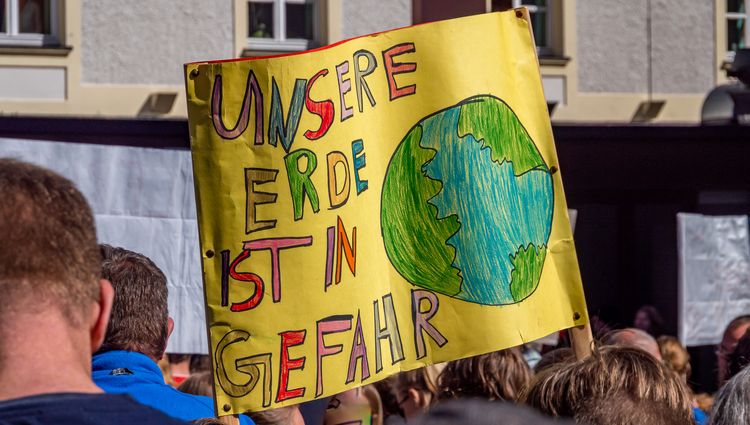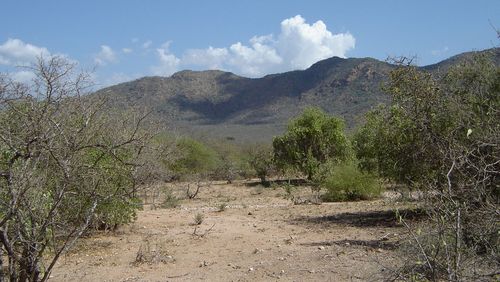Governments are guided by ethical principles when it comes to climate protection, while cost-benefit considerations take priority for their citizens, according to a new Oldenburg study. This poses a dilemma for ambitious climate politics.
In the bid to combat climate change, the signatory states to the Paris Agreement on Climate Change periodically submit voluntary targets specifying a percentage by which they pledge to reduce their greenhouse gas emissions (Percentage Reduction Pledges, PRPs). In an empirical study, Prof. Dr. Heinz Welsch, an environmental economist at the University of Oldenburg, investigated the extent to which these "national climate targets" correspond to the willingness of the citizens of the respective countries to contribute to climate change mitigation (Willingness to Contribute, WTC) and published his findings in the journal Ecological Economics. Welsch concludes that country-specific factors such as per-capita income, emissions levels and temperatures play a significant role for both variables (PRPs and WTC), but that whereas these factors were positively correlated to the percentage reduction pledges, they were negatively correlated to willingness to contribute – and that there is also a correlation with levels of satisfaction with democracy.
In his study Welsch compares the national climate targets of 123 nations – last agreed in 2021 – with globally representative data. Almost 130,000 people in 125 nations were surveyed in 2021 and 2022 for the Global Climate Change Survey, which was published last year. One key finding of the survey was that a large majority of the world's population supports climate protection measures: 89 percent of the respondents would like to see more political action against climate change from their national governments, and 69 percent said they would be willing to contribute one percent of their income towards measures to combat climate change.
The higher the average temperature in a country, the greater the willingness to protect the climate
Welsch used these data to test a model he developed to analyse the interplay between cost-benefit considerations, ethical principles and citizens' preferences. His study focused on the question of which factors are relevant in determining the climate protection targets of national governments and the willingness of citizens to contribute to climate change mitigation. It showed that "per-capita income" and "per-capita emissions" were key factors for both variables and that the average temperatures of the past decade were also relevant. Welsch found that the higher a country's income and emissions levels, the more ambitious its government's climate targets were, whereas the opposite was the case regarding people's willingness to contribute to climate change mitigation: the higher the income and emissions, the less willing the population was to contribute to fighting climate change. Diverging trends can also be observed regarding the temperature factor: the willingness to contribute to climate protection is greater in warmer countries than in colder ones, but countries with colder climates pursue more ambitious climate targets.
The figures for Germany align with these findings: Germany was among the most ambitious countries in the last round of pledges. With an emissions reduction target of 39.7 percent for the period between 2019 and 2030, it ranked 12th out of 123 on this score. However, according to the Climate Change Survey, although willingness among the German population to contribute to climate action was also high, it was lower than in most other countries. With 67.9 percent of German respondents saying they would be willing to give up one percent of their income each month to contribute to climate action, Germany ranked 74th in the international comparison. Asked whether the government should do more to fight climate change, 86 percent of respondents said yes – leaving Germany in 89th place out of 123.
People assume that the lower the temperatures in a country are, the less impact climate change will have there.
The study interprets these findings as indicative of a conflict between the United Nations' climate ethics principle of the "common but differentiated responsibilities" of states, which emphasises fairness and equity, and the cost-benefit calculations that prevail among the populations included in the analysis. "People assume that the lower the temperatures in a country are, the less impact climate change will have there," explains Welsch, At the same time people in countries with high per-capita emissions fear that climate protection measures will have a negative impact on their economy, he adds. "Cost-benefit calculations therefore make it likely that in colder, richer and more carbon-intensive countries there will be less willingness to contribute to climate protection."
"In sum, there is a discrepancy between the relatively ambitious climate targets of rich and carbon-intensive countries in colder regions and the lower levels of willingness among their populations to contribute to combating climate change," explains Welsch. The study also shows that there is a correlation between this discrepancy and lower levels of satisfaction with democracy: the more ambitious a government's climate targets compared to the population's willingness to contribute to climate protection, the lower the proportion of the population that is satisfied with the functioning of democracy in that country. "This is not necessarily a causal relationship," the environmental economist hastens to emphasise. Nevertheless, pursuing a climate policy that involves sacrifices on the part of the population without promoting the advance of radical forces that exploit the climate issue for their own purposes poses a challenge for democratic societies, he notes.
According to Welsch, the dilemma posed by an ambitious climate policy could be addressed by introducing political instruments that mitigate the economic and social impact of climate protection measures. As one such potential instrument he proposes a climate fund through which revenues from emissions taxes are distributed to the economically weaker sections of a population.




